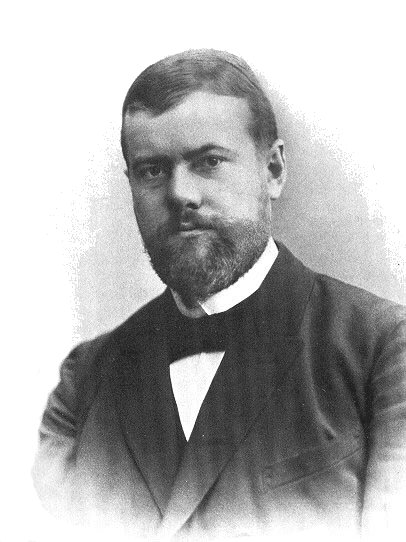While growing up in Germany in the 1960s and 1970s, being evangelisch meant above all that you were not katholisch and therefore had to wait five years longer for your Confirmation presents. This was a little annoying, but in hindsight, it may qualify as my first encounter with the inner-worldly asceticism that Max Weber describes in The Protestant Ethic and The Spirit of Capitalism. Delayed gratification aside, the German evangelical church at the time came across as benign, even reasonable, open to critical discussion and staffed with laid-back, progressive pastors. It was the seventies after all. Nobody would have spelled evangelical with a capital “E” back then, at least not in Europe. That Protestantism in the US could take on a very different flavor didn’t occur to me until I moved to California in the early 2000s and it was my daughter’s turn for Confirmation class. There was a lot about Satan in the curriculum and all the things you could go to hell for, like not showing up for class at Bethany Lutheran Church.
Satan, really? Back then, the last time I had heard of him was also in the seventies, in a movie theater watching Rosemary’s Baby. Recently, he has been making more headlines, like earlier this year, when the spiritual advisor to the White House and televangelist Paula White prayed for “all Satanic pregnancies to miscarry right now.” And then earlier this month, when Billy Graham’s son Franklin was barred from speaking in the UK about how “Satan managed to pass gay marriage legislation.”
Max Weber traveled through the US in 1904 to study the sociology of religion. Interestingly, Protestants at the time seemed less obsessed with the underworld and more interested in worldly affairs. Weber praised the progressive dynamics of America’s many “voluntaristic sects.” He was impressed by their independence and self-governance and saw them operating as social and economic networks, which, due to their Protestant work ethic, were thriving in a capitalist society. Protestant revival movements like Christian Science, still new at the time and preaching that sickness was a mental error curable by reading the right books, did strike him as odd. However, always the self-assured German professor, Weber predicted that these spiritual aberrations would be swept away by cultural rationalization, secularization and bureaucratization. This, after all, was based on his theory of modern Western society, where scientific understanding replaces belief systems and mythical explanations.

Maybe Weber loved his theory a little bit too much. He would be surprised to find out that instead of becoming rational, disenchanted or versachlicht, almost a third of the US population today identifies as Evangelical and interprets the Bible as a literally true account of the past and unfailing guide to the future. This gets particularly tricky when it comes to the Book of Revelation, which contains all the Evangelicals’ pet themes. Martin Luther found the Apocalypse of John “neither prophetic nor apostolic” and tried to keep it out of the biblical canon. Thomas Jefferson considered the steaming stories about Satan and the Antichrist “ravings of a maniac.” He was particularly disturbed by the promise of a Golden Age on Earth, lasting one thousand years and reserved for faithful Christians who would be spared the preceding “Great Tribulation” by temporarily escaping into Heaven. I find it disturbing too — the last time somebody in Germany promised one thousand years of Paradise, it turned out to be twelve years of hell and Holocaust.
Where does this knack for escapist belief systems in the United States comes from? I guess probably from the very beginning. Sailing to America in 1620 was perfect timing if you wanted to take with you an untainted love for bizarre theological certainties such as the coming 1000-year reign of Jesus Christ. The Pilgrims boarded the Mayflower when the rest of Europe was about to begin a 30-year massacre over whose faith was the right faith. It left half the population dead and the other half with a soberer attitude towards the benefits of religion and rampant self-righteousness. The early Americans missed out on that experience, and unabashed Puritanism survived through the centuries.
Evangelicalism, as we know it today, took off in the 1950s, and Billy Graham played a big role in it. So did TV and later the Internet. In Minnesota, where I live now, one doesn’t need devices to get the gospel, a car will do. When I first moved here twelve years ago, giant billboards on the roadside were merely insisting that Jesus was alive “beyond a reasonable doubt.” Recently, however, the signs have begun to target evolution by showing quotes from the Book of Genesis plastered over photos of planet Earth and by openly discriminating against primates and their developmental potential. I wish animal rights groups would take GospelBillboards.org to court for that! Every time I am commuting on highway 35 between the University of Minnesota Duluth and Twin Cities campuses, I get reminded that Weber’s theory of unstoppable Enlightenment in Western societies is, well, just a theory. What if pastors of any denomination in the US were required, like in other countries, to study theology at a comprehensive university as opposed to stand-alone, obscure seminaries? Teaching that Earth and all creatures on it were created 6,000 years ago becomes more challenging when your colleague next door is a professor of biology. You’d also think twice as a student before believing it when you are surrounded by a diverse group of people and opinions and not just like-minded followers. For now, however, we have to sadly recognize that to a large swath of people in America, the world remains what Max Weber called “an enchanted garden” from which in the not too distant future they will be lifted off into the clouds. Satan, if he existed, would laugh his tail off.
Henning Schroeder is a former vice provost and dean of graduate education at the University of Minnesota. He’s at schro601@umn.edu. On Twitter: @HenningSchroed1.

Comments